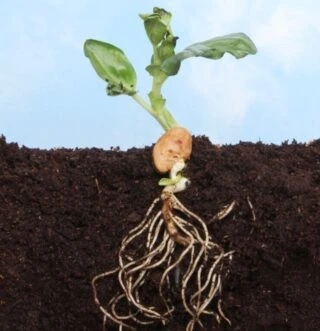In terms of modern agriculture general sustainability is greatly influenced by the condition of the soil. Chemical analysis has been used in conventional soil testing techniques to evaluate soil characteristics. But these techniques ignore the relationships between soil microorganisms, especially fungi, and their influence on soil health. Microbiometers are a ground-breaking technology that is transforming how farmers test and analyze soil.
In this blog post, we'll explore the importance of microbiometers and how they help us understand how fungi and soil health are related.
Understanding the Limitations of Traditional Soil Testing:
The main focus of traditional soil testing techniques has usually been on evaluating chemical characteristics including pH, nutrient content, and organic matter. Although these criteria offer useful information, they are unable to fully account for the complex web of life that exists in the soil, including the wide variety of microbes like fungi. This information gap prevents the establishment of focused soil management strategies and prevents a thorough understanding of soil health.
The Role of Fungi in Soil Health: Fungi play an important part in soil ecosystems and have a significant impact on soil health. They establish symbiotic connections with plant roots to create mycorrhizal associations, which boost nutrient intake and increase plant resistance to environmental stressors. Additionally, some fungi participate in the decomposition of organic matter and aid in the cycling of nutrients. However, the precise makeup and diversity of microbial communities can change based on the types of crops grown, soil management techniques, and environmental factors.
Benefits of Microbiometers:
Comprehensive Analysis: When compared to conventional testing techniques, microbiometers provide a more thorough examination of soil health. Farmers obtain a deeper understanding of the biological activity, nutrient cycling, and general fertility of the soil through the assessment of the microbial diversity. With the use of this information, they can modify their management tactics and enhance the soil's growth-promoting properties.
Real-Time Results: Results are available instantly with microbiometers, as opposed to traditional soil testing, which may take weeks or even months to complete. Farmers are able to immediately respond to any issues that can reduce crop output since they can get feedback on the condition of their soil in real-time. Making hasty decisions, such as altering fertilizer applications or implementing advantageous soil amendments, might maximize efficiency.
Precision Agriculture: Using microbiometers, farmers can practice precision agriculture and customize their strategies for certain fields within their yards. Farmers can modify their tactics accordingly, minimizing wasteful inputs and lowering the danger of soil damage, by recognising microbial hotspots or imbalances. This focused strategy encourages sustainable farming methods while optimizing resource use.
Conclusion:
Micrometers are revolutionizing the field of soil testing and analysis by giving farmers priceless knowledge on the health of their soil, including the critical function of fungus. These cutting-edge methods fill the gap between traditional chemical analysis and a more thorough understanding of soil ecosystems by utilizing the capability of DNA sequencing. Farmers are better equipped to improve crop yield, support sustainable agriculture for a greener future, and optimize soil management practices as they continue to use microbiometers.


